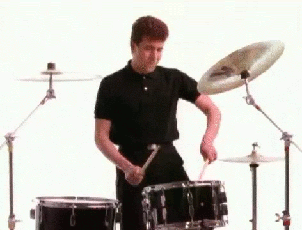The law clarifies that neither a tap with the heel nor a bounce on the knee constitute kicks. It also confirms (21.3b) that at least one example of not taking a kick (bouncing on the knee) is an offence.
Here we are, treating the laws as if they were Parliamentary Statutes. They are not. They are an attempt to set down the rules in a fashion that can be understood by ordinary players with no legal training. That means they will always be flawed to a greater or lesser extent.
The relevant points are not covered in the 1959 Laws, so my earliest reference is 1974, and the law was next changed in 2000.[LAWS]
1974
Law 27 PENALTY KICK
[...]
Penalty:for an infringement by the kicker's team - a scrummage at the mark.
Definitions
Kick. A kick is made by propelling the ball with any part of the leg or foot (except the heel), from knee to toe inclusive. If the player is holding the ball, he must propel it out of his hands, or if it is on the ground, he must propel it a visible distance.
Instruction and Notes on the Laws
27 (3) A player taking a penalty kick may not bounce the ball on his knee. The kick must be made with the foot or lower leg. If a player fails to kick the ball, a scrummage should be ordered.
2000
Definitions
Kick - a kick is made by hitting the ball with any part of the leg or foot, except the heel, from the toe to the knee but not including the knee; a kick must move the ball a visible distance out of the hand, or along the ground
Law 21
3. HOW THE PENALTY AND FREE KICKS ARE TAKEN
Any player may take a penalty or free kick awarded for an infringement with any kind of kick: punt, drop kick or place kick. The ball may be kicked with any part of the leg from knee to toe but not with the heel.
(b) Bouncing the ball on the knee is not taking a kick.
(c) The kicker must use the ball that was in play unless the referee decides it was defective.
Penalty: Any infringement by the kicker's team results in a scrum at the mark. The opposing team throws in the ball.
[/LAWS]
As I pointed out in my #22, a team has been awarded the right to take a penalty KICK. They can formally ask for a scrum or a lineout, but otherwise play can only be restarted with a valid kick. Any other attempt to restart play is invalid and gives the opposition a scrum.
IMHO that is common sense, and is the way it has been refereed for many years.
(Taking the kick quickly, before the referee makes the mark, but from the wrong place is generally accepted as a permissible error, hence a re-take.)





